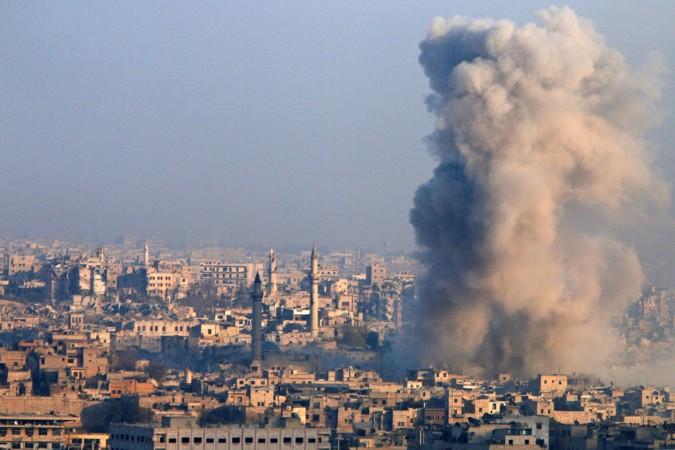
The Syrian government has announced that it has agreed to a ceasefire with rebel groups.
The deal which does not apply to ISIS and al-Qaeda splinters and affiliates, comes into effect at midnight on Thursday.
The deal, which has been backed by Russia and Turkey raises hopes that the six-year civil war that has claimed hundreds of thousands of lives could finally be at an end.
If it holds, the deal will also bring a glimmer of stability to a region that over the last few months has also seen ISIS hemmed-in and weakened in its strongholds in Iraq.
A ceasefire could also mean that the military focus in Syria can now return to defeating ISIS in its remaining centres in the country.
ISIS was recently able to retake the ancient city of Palmyra after Syrian government forces were entrenched in a battle of attrition against rebels in Aleppo. Now, however, with the Syrian government in control of the country's two largest cities (Aleppo and Damascus) it may have been easier to reach a ceasefire agreement with rebel groups.
The ceasefire may also force a policy shift in the US towards Syrian president Basher al-Assad, who has long been considered a political pariah by the Obama government, and its allies.
President-elect Donald Trump has suggested on the campaign trail that he may be willing to sit down with Assad and his Russian allies and discuss ways to finally rid Syria of ISIS. A peace deal, if it holds, would give the new US president some leeway while dealing with the Syrians and the Russians.
Former state department officials believe that the timing of this deal could mean that terms of the ceasefire, no matter how tenuous, would have to be respected by the incoming US president.
While Russian president has admitted that the agreement is "fragile" he did not reveal which rebel groups had agreed to it, only that it would include 62,000 opposition fighters across the country.
Observers believe that this ceasefire has a greater chance of succeeding where others have failed due to the fact that the three main players – Assad, Russia and Turkey – all support it.
The ceasefire will also be used to hammer out a more lasting peace agreement.
It is increasingly likely that Assad will continue on as Syrian president (though for how long remains to be seen), and the Kurds' geopolitical aspirations may be hamstrung largely due to Turkey's support of the ceasefire.
All parties, including the US, agree, however, that the war on ISIS will continue.













!['He is done with the team now' : Angry Virat Kohli slams the bat, kicks the ground, yells at RCB team as SRH smashes runs [reactions]](https://data1.ibtimes.co.in/en/full/796956/he-done-team-now-angry-virat-kohli-slams-bat-kicks-ground-yells-rcb-team-srh-smashes.jpg?w=220&h=138)



